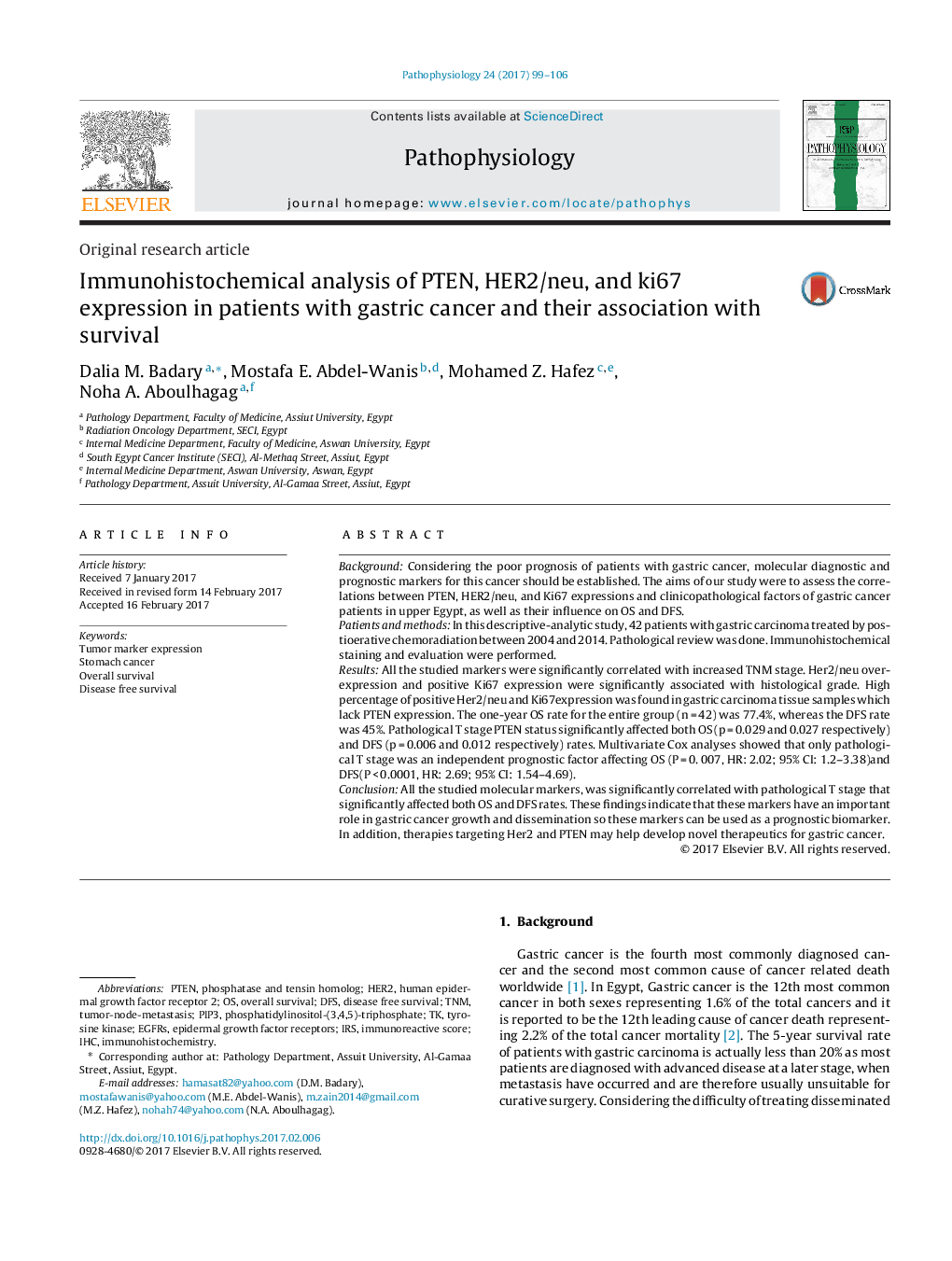| Article ID | Journal | Published Year | Pages | File Type |
|---|---|---|---|---|
| 5716581 | Pathophysiology | 2017 | 8 Pages |
BackgroundConsidering the poor prognosis of patients with gastric cancer, molecular diagnostic and prognostic markers for this cancer should be established. The aims of our study were to assess the correlations between PTEN, HER2/neu, and Ki67 expressions and clinicopathological factors of gastric cancer patients in upper Egypt, as well as their influence on OS and DFS.Patients and methodsIn this descriptive-analytic study, 42 patients with gastric carcinoma treated by postioerative chemoradiation between 2004 and 2014. Pathological review was done. Immunohistochemical staining and evaluation were performed.ResultsAll the studied markers were significantly correlated with increased TNM stage. Her2/neu overexpression and positive Ki67 expression were significantly associated with histological grade. High percentage of positive Her2/neu and Ki67expression was found in gastric carcinoma tissue samples which lack PTEN expression. The one-year OS rate for the entire group (n = 42) was 77.4%, whereas the DFS rate was 45%. Pathological T stage PTEN status significantly affected both OS (p = 0.029 and 0.027 respectively) and DFS (p = 0.006 and 0.012 respectively) rates. Multivariate Cox analyses showed that only pathological T stage was an independent prognostic factor affecting OS (P = 0. 007, HR: 2.02; 95% CI: 1.2-3.38)and DFS(P < 0.0001, HR: 2.69; 95% CI: 1.54-4.69).ConclusionAll the studied molecular markers, was significantly correlated with pathological T stage that significantly affected both OS and DFS rates. These findings indicate that these markers have an important role in gastric cancer growth and dissemination so these markers can be used as a prognostic biomarker. In addition, therapies targeting Her2 and PTEN may help develop novel therapeutics for gastric cancer.
